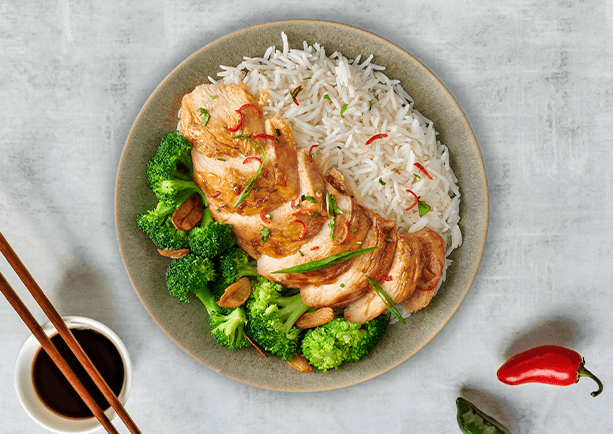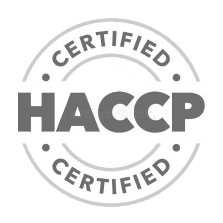10-Day CKD Meal Plan for Better Kidney Health

Managing Chronic Kidney Disease (CKD) requires a multifaceted approach, with diet playing a crucial role in maintaining kidney health. A well-structured CKD meal plan can help reduce the burden on your kidneys by controlling the intake of certain nutrients and ensuring balanced nutrition. Whether newly diagnosed or looking to optimise your dietary habits, understanding what a kidney-friendly eating plan entails is essential for better health outcomes.
In this blog, we'll explore the fundamentals of a CKD meal plan, guiding you through building a diet that supports kidney function and overall well-being. From defining a kidney-friendly eating plan to providing a detailed 10-day CKD meal plan, we'll cover everything you need to know to make informed dietary choices. You'll also find practical tips for staying on track and answers to common questions about kidney health and nutrition.
What Is CKD and Diet?
Chronic Kidney Disease (CKD) is a long-term condition characterised by a gradual loss of kidney function over time. The kidneys play a crucial role in filtering waste products and excess fluids from the blood, which are then excreted in the urine. When kidney function declines, waste products and fluids can build up in the body, leading to various health problems such as high blood pressure, anaemia, weak bones, and nerve damage.
CKD is typically divided into five stages, based on the severity of kidney damage and the level of kidney function remaining. The stages range from mild (Stage 1) to severe (Stage 5), with the latter also known as end-stage renal disease (ESRD), which may require dialysis or a kidney transplant.
How Does Diet Impact Kidney Health?
Diet plays a pivotal role in managing CKD and slowing its progression. A kidney-friendly diet helps to reduce the workload on the kidneys by limiting certain nutrients that can accumulate in the bloodstream and become harmful when the kidneys are not functioning optimally. Proper nutrition also helps to maintain overall health, manage symptoms, and prevent complications associated with CKD.
What are the Goals of a CKD Meal Plan?
Reducing Waste Buildup: Limiting protein, sodium, potassium, and phosphorus intake can help prevent the buildup of waste products in the blood.
Managing Electrolytes: Keeping electrolyte levels in balance is crucial, as imbalances can lead to serious health issues such as heart problems and muscle weakness.
Maintaining Overall Health: Ensuring adequate calorie intake and nutritional balance helps maintain energy levels, prevent muscle wasting, and support overall well-being.
What is a Kidney-Friendly Eating Plan?
A kidney-friendly eating plan is designed to support kidney function and overall health by carefully managing the intake of specific nutrients. The primary principles include controlling protein intake, limiting sodium, potassium, and phosphorus, and ensuring adequate calorie consumption to meet energy needs without overburdening the kidneys. The key Nutrients to Focus On:
Protein: While protein is essential for maintaining muscle mass and overall health, excessive protein intake can increase the workload on the kidneys. It's important to consume moderate amounts of high-quality protein sources.
Sodium: High sodium intake can lead to high blood pressure and fluid retention, which can strain the kidneys. Limiting sodium helps manage blood pressure and reduce fluid buildup.
Potassium: It is vital for muscle function and heart health, but too much can be dangerous for people with CKD. Controlling potassium intake is part of a kidney-friendly diet.
Phosphorus: Excess phosphorus can weaken bones and damage blood vessels. Limiting foods high in phosphorus is crucial to protect bone and cardiovascular health.
How to Build Your Better Kidney Health Meal Plan?
- Limit sodium, potassium, and phosphorus.
- Balance protein intake to reduce kidney strain.
- Include lean proteins, low-potassium fruits and vegetables, whole grains, and healthy fats.
- Opt for fresh, whole foods.
- Focus on kidney-friendly foods; avoid high-sodium, high-potassium, and high-phosphorus items.
- Keep track of portion sizes to avoid nutrient overload.
- Drink plenty of water.
- Avoid sugary and caffeinated beverages.
10-Day CKD Meal Plan for Kidney Health
|
Day |
Breakfast |
Lunch |
Dinner |
Snack |
|
1 |
Oatmeal with blueberries |
Chicken salad with low-potassium vegetables |
Baked salmon with rice and steamed broccoli |
Apple slices with almond butter |
|
2 |
Scrambled eggs with spinach |
Turkey and avocado sandwich on whole grain bread |
Grilled chicken with quinoa and green beans |
Low-sodium popcorn |
|
3 |
Smoothie with almond milk, strawberries, and chia seeds |
Lentil soup with a side of mixed greens |
Shrimp stir-fry with vegetables and brown rice |
Carrot sticks with hummus |
|
4 |
Greek yogurt with a handful of raspberries |
Quinoa salad with chickpeas and cucumber |
Pork chops with mashed cauliflower and asparagus |
Rice cakes with peanut butter |
|
5 |
Whole grain toast with avocado and a poached egg |
Tuna salad with lettuce and low-potassium vegetables |
Baked cod with roasted Brussels sprouts and sweet potato |
Fresh pineapple chunks |
|
6 |
Cottage cheese with peaches |
Chicken wrap with lettuce and bell peppers |
Beef stir-fry with bok choy and jasmine rice |
Unsalted mixed nuts |
|
7 |
Smoothie bowl with mixed berries and almond milk |
Veggie burger with lettuce and tomato on a whole grain bun |
Roasted turkey with quinoa and sautéed zucchini |
Sliced cucumber with tzatziki |
|
8 |
Chia pudding with strawberries |
Grilled chicken Caesar salad (no croutons) |
Seared tuna with couscous and a side salad |
Pear slices with cheese |
|
9 |
French toast with low-sugar syrup |
Turkey and cheese roll-ups with a side of carrots |
Lamb chops with roasted vegetables and basmati rice |
Celery sticks with cream cheese |
|
10 |
Smoothie with banana, almond milk, and spinach |
Spinach and feta stuffed chicken breast with a side salad |
Grilled shrimp tacos with cabbage slaw |
Fresh strawberries |
Conclusion
Understanding the risk factors of kidney disease is crucial for prevention and early intervention. By managing conditions like diabetes and high blood pressure, maintaining a healthy weight, avoiding smoking, and staying hydrated, you can significantly reduce your risk of developing kidney disease.
Regular check-ups and being aware of your family history and ethnic predispositions also play a vital role in protecting your kidney health. Taking proactive steps today can help ensure better kidney function and overall health in the long run.
Trending Searches:
Meal Plan Dubai | Meal Plans Abu Dhabi | Meal Plan Ajman | Meal Plan Al In | Meal Plan Sharjah | Meal Plan Subscription
FAQs
1. Are there specific foods that I should avoid to protect kidney health?
Yes, avoid high-sodium foods (like processed meats and canned soups), high-potassium foods (such as bananas and tomatoes), and high-phosphorus foods (like dairy products and nuts). Limiting these foods can help reduce the burden on your kidneys and manage waste buildup in the body.
2. What are the key dietary restrictions for someone with CKD?
Key dietary restrictions for CKD include limiting sodium, potassium, and phosphorus intake. It's also important to balance protein consumption to avoid overworking the kidneys, and to ensure you get enough calories from other nutrient-dense foods.
3. What are some easy and kidney-friendly recipes for the CKD meal plan?
Some easy kidney-friendly recipes include grilled chicken with quinoa and green beans, oatmeal with blueberries, and shrimp stir-fry with vegetables and brown rice. These meals are low in sodium, potassium, and phosphorus while providing balanced nutrition.
4. How can I monitor my kidney health and symptoms while on this meal plan?
Regularly check your blood pressure, monitor your weight, and keep track of any symptoms such as swelling or fatigue. Regular blood tests and consultations with your healthcare provider are essential to assess kidney function and make necessary dietary adjustments.
5. Are there any recommended supplements or vitamins for someone with CKD?
Supplements such as vitamin D, iron, and calcium may be recommended for individuals with CKD. However, it's crucial to consult with your healthcare provider before starting any supplements to ensure they are appropriate for your specific condition.
6. What types of foods should I include in my 10-day CKD meal plan?
Include lean proteins (like chicken and fish), low-potassium fruits and vegetables (such as apples and cauliflower), whole grains (like brown rice and quinoa), and healthy fats (such as olive oil and avocados). These foods help maintain balanced nutrition while protecting kidney health.
Related Blogs
The Burnout Diet
Jan 30, 2026 | 8The mental load of “What should I eat today?"
Jan 22, 2026 | 8The real glow-up starts with your gut health
Jan 14, 2026 | 8Healthy food that doesn’t taste like “Diet Food”
Jan 17, 2026 | 8Why do most people in the UAE get their calories wrong
Dec 8, 2025 | 6DASH Diet Meal Plan
Nov 11, 2025 | 8Fatty Liver Meal Plan
Oct 31, 2025 | 8Pregnancy Diet Meal Plan
Oct 27, 2025 | 82000 Calorie Meal Plan
Oct 1, 2025 | 8Intermittent Fasting Diet Plan
Sep 5, 2025 | 8






